Research Brew & Exchange Cafe 1
When and Where
Speakers
Description
Latin American Studies is pleased to invite you to the first event of our "Research Brew & Exchange Café" series, dedicated to the exploration of research related to Latin America. Here, graduate students will present their ongoing projects, providing you with a firsthand look at the incredible depth and diversity of research related to Latin America and its diasporas taking place right here, at the University of Toronto.
We welcome Luisa Duarte Milani and Marianne Lahaie Luna, both from the Department of Geography and Planning.
In Search of an Environmentally Just Governance of Informal Settlements in Brazil
About the Presentation:
Brazil is a country where urban informality is rampant (Fischer, 2021), and Brazilian cities, such as São Paulo, regularly experience floods, landslides, and droughts (Marchezini & Wisner, 2017). São Paulo has the largest population and the GDP in Brazil, however, it is highly unequal and nearly 674,000 people live in environmentally risky areas (IBGE, 2018). Environmental vulnerability is linked to the city’s history of infrastructure projects that seek to control rivers to make space for development and the city’s acceptance of informal housing as a response to housing affordability (Alves, 2006; Amaral & Ross, 2020; Rolnik, 1997; Villaça, 2009). Additionally, most of those living in risky areas are Black and Brown informal settlers, indicating a pattern of environmental racism (Barone, 2023; Rolnik, 1997). In my work, I will be looking at the relationship between informal housing and environmental risks by asking the question, “How does environmental planning support (or undermine) the informal settlements’ residents’ efforts to access their rights to the city?” I will do so to understand how governance, which I understand as the network of multiple state and non-state actors, as well as power relationships, involved in organizing society (Haid & Hilbrandt, 2019), inadvertently creates injustice through its diverse and uncoordinated efforts to deliver two fundamental but competing rights, the right to housing and right to clean environment.
About the Presenter:
Luisa Duarte Milani is a Ph.D. candidate in the Planning program. She has an M.S. in Community and Regional Planning from the University of Texas at Austin, and a B.Arch. in Architecture and Urbanism from the University of São Paulo. Before moving into the field of planning, she worked as an architect and still has a passion for design. While in graduate school, she participated in research projects related to flood resilience both in the USA and Canada. Her current research focuses on environmental justice and informal urban settings in Brazil.
Understanding the Spatial Influences that Contribute to Food Behaviours of Latinx Immigrants in Toronto
About the Presentation:
A housing unaffordability crisis is currently impacting many Torontonians. An estimated one in five Canadian adults between the ages of 25 and 34 live in unaffordable housing, defined as spending 30% or more of their pre-tax income on housing. Although the housing reality for Latinx immigrants in Toronto is unknown, research studying Latinx immigrants elsewhere found this population was at an increased risk of experiencing displacement, landlord abuse and a sense of powerlessness. In addition to being a fundamental human right, housing stability is also associated with various food behaviours and health outcomes. When considering precarious housing caused by economic hardship, studies indicate that co-living situations can be a viable housing solution. However, these spaces tend to have communal kitchens, and it is uncertain how this might affect food behaviours, as there is a dearth in the literature regarding this topic. Research on the relationship between access to food storage and preparation facilities within homes and food behaviours is scarce and also needs to be better understood within the context of immigrants in Canada. Given the greater risks of experiencing housing precarity and the association between housing instability and food behaviours that may influence the ability to maintain healthy diets, my dissertation aims to understand the role that rental housing and the available facilities within the home influence food behaviours of self-identifying Latinx Spanish-speaking immigrants in Toronto.
About the Presenter:
Marianne Lahaie Luna is a third-year Ph.D. Candidate in the Department of Geography and Planning. Prior to starting her doctoral degree, Marianne completed a Master of Public Health at the University of Toronto, specializing in Environmental Health, and holds a Bachelor of Science with Honours in Environmental Science from the University of Ottawa. Her passion for research led her to work with the Ottawa Hospital Research Institute, the Harvard T.H. Chan School of Public Health, and the United Nations Food and Agriculture Organization. Marianne also advocates for menstrual health rights through her work with the Lahaie Luna Lezama NGO, which she co-founded.


